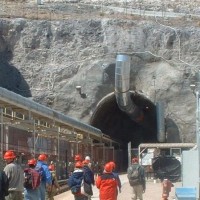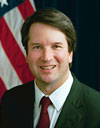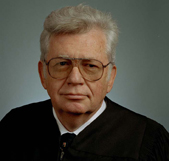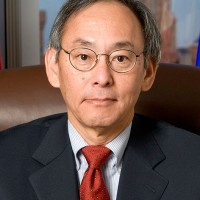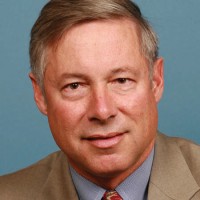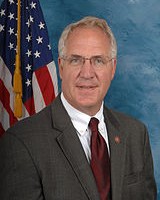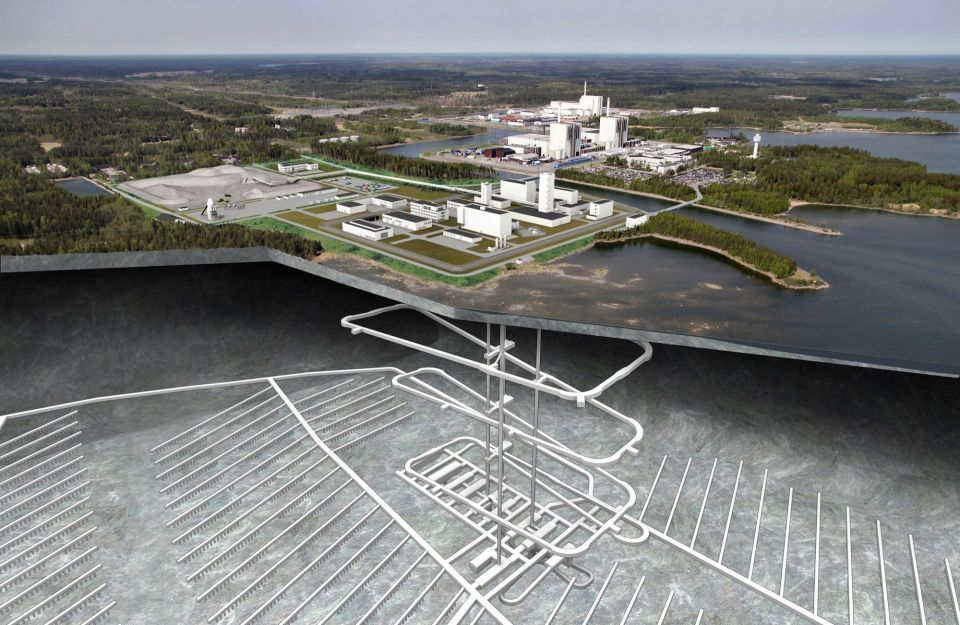Promising developments in Yucca Mountain lawsuit
The D.C. Circuit Court of Appeals heard oral arguments on March 22, 2011, for the lawsuit brought by three private citizens of Washington State challenging the president's authority to cancel the Yucca Mountain nuclear waste repository.
The three-judge panel listened to Washington State assistant attorney general Andrew Fitz and attorney Barry Hartman for the private citizen petitioners Bob Ferguson, Bill Lampson, and Gary Petersen, as they attempted to lay out the merits of their cases. But less than a minute into Fitz's presentation, Chief Judge David Sentelle interrupted to remind the parties that the court has an obligation to consider cases only if they stem from "final" agency action and are "ripe" for review, referring to the Nuclear Regulatory Commission's still pending decision on the Department of Energy's request to withdraw the Yucca Mountain license application.
Circuit Judge Janice Rogers Brown noted that the Atomic Safety and Licensing Board (ASLB), the NRC's own judicial panel, ruled that the DOE lacked the authority to withdraw the license. Circuit Judge Brett Kavanaugh concurred that it is not yet known whether the NRC will reject considering the Yucca license application.
The ASLB rejected the DOE's request to withdraw its Yucca Mountain license application on June 29, 2010. The court and petitioners have waited more than 8 months for the NRC's final decision, which hangs on NRC chairman Gregory Jaczko's refusal to submit his vote.
Judge Kavanaugh suggested that if the petitioners believe the NRC is stalling, they could file a mandamus action-a prerogative writ that can be issued by a superior court to compel a government officer to perform ministerial duties correctly. Judge Brown added that if the NRC fails to act, this inaction could trigger final agency action.
The government's attorney-Ellen Durkee from Department of Justice-responded that the NRC's length of time to consider the ASLB decision had not been that unreasonable. Judge Brown reiterated that petitioners could bring a new action if NRC fails to act.
Judge Brown noted that there is a three-year deadline in the Nuclear Waste Protection Act (NWPA) for the NRC to issue a license for Yucca Mountain, and that the deadline will arrive in either June or September of this year.
Judge Kavanaugh asked attorney Durkee whether or not the DOE would comply if the NRC says it lacks the authority to withdraw the license. Durkee responded that they would seek an appeal, but after some additional aggressive probing from Judges Brown and Kavanaugh, she finally said yes, the DOE will comply with a non-appealable decision from the NRC by restarting the licensing process.
Judge Kavanaugh asked Durkee when the NRC will act. She said that the NRC's general counsel would not tell her about the timetable and that she didn't know.
Judge Brown criticized the Obama administration for not waiting for the NRC to act before "dismantling" the Yucca project. Durkee said that the DOE was proceeding only with a plan to abandon Yucca, which provoked Judge Kavanaugh to say that what is going on with the Yucca termination is a lot more than just a plan.
At the end of Durkee's argument, Judge Kavanaugh remarked that "it does seem that the DOE has made a considered decision not to comply with the law passed by Congress," acknowledging that the DOE's decision to abandon Yucca Mountain is not in compliance with the NWPA.
Attorneys Fitz and Hartman reminded the court that the private citizens' petition did not include the NRC, but was aimed at stopping the president and energy secretary from dismantling Yucca, stressing that their actions thus far involved substantially more than withdrawing the license application. Fitz said that the NRC could not compel the DOE to reconstruct the Yucca Mountain Project. In response, Judge Kavanaugh noted that attorney Durkee had said that the DOE would comply with the NRC. Fitz told Kavanaugh that the NRC chairman had instructed his staff to stop work on the Yucca license review, to which Judge Sentelle asked for the authorities to support this conclusion.
Fitz summed up his oral arguments by stating that the license application is only one small part of the overall case. Notwithstanding the NRC's action or inaction on the license application, the petitioners had a right under section 119 of the NWPA to challenge the final decision of the Obama administration to cancel the Yucca Mountain Project.
Fitz reminded the judges that a final decision was made by President Obama and Energy Secretary Chu on January 29, 2010, at a press conference, where they rejected Yucca Mountain and declared it "off the table" as the site for the nation's only high-level nuclear waste repository.
Judge Sentelle questioned whether a press release could constitute final agency action.
Fitz argued that the press release issued by President Obama and Secretary Chu stating their decision to abandon Yucca Mountain could be considered a final action that permitted the court to review the merits, citing that the case of CropLife America v. Environmental Protection Agency as on-point in establishing the precedent that a press release could be viewed as a final agency action. In that case, the D.C. Court of Appeals determined that a directive issued by the EPA in a press release was a binding regulation.
Two Important New Developments
Events since the March 22 oral arguments provided the petitioners with the authorities requested by Chief Judge Sentelle to satisfy the ripeness argument regarding the NRC's "final agency action." The petitioners submitted the following supplemental authorities through a letter to the court sent by the attorney general of Washington State, Rob McKenna.
First, the testimony of NRC chairman Gregory Jaczko, given on Thursday, March 31, 2011, before the Energy and Water Development Subcommittee of the House Appropriations Committee, provided an answer to the court's question of whether matters before the NRC rendered the DOE's decision non-final or unripe. In his testimony, Chairman Jaczko stated:
"It is not the responsibility of this body [the NRC] to require the DOE to move forward or not move forward with a particular program or a program direction. Our job is licensing. That is the function and responsibility of this body. And no more than you would expect the fire marshal to go in and tell a developer to continue developing a building so that they can conduct their fire inspections should we be expected to be in a position of demanding or requiring the Department of Energy to move forward with a program."
The chairman has thus admitted that the NRC has no authority to compel the DOE to comply with the NWPA. That authority lies with the Washington, D.C. Circuit Court of Appeals. By the NRC's own admission, there is no decision for the NRC to make regarding the two issues pending before the court; that is, whether the DOE may reject Yucca Mountain and abandon all efforts to develop it, and whether the DOE may specifically abandon the licensing process. The DOE's decision is final and ripe. Respondents' representations in litigation do not change this finality.
Second, on April 1, 2011, another precedent was set by the D.C. Circuit Court of Appeals in a decision rendered by Chief Judge Sentelle regarding CSI Aviation Services v. the U.S. Department of Transportation, using the CropLife America case as precedent.
The court may reach a decision as early as the end of May.
Help from Congress...Finally
Another welcome development in the battle for Yucca Mountain is the announcement on March 31 that the House of Representatives' Energy and Commerce Subcommittee on Environment and the Economy is launching an investigation into the Obama administration's efforts to shut down and dismantle the Yucca Mountain Project.
The Subcommittee notified Secretary Chu and Chairman Jaczko that it is investigating the decision-making process to terminate the Yucca Mountain nuclear waste repository.
After reviewing available evidence indicating that there was no scientific or technical basis for the DOE's request to withdraw the Yucca Mountain license application, Energy and Commerce
Committee Chairman Fred Upton (R., Mich.) and Environment and the Economy Chairman John Shimkus (R., Ill.) are representing Congress in a demand for answers about the administration's decision to halt development of the only U.S. site designated by Congress for permanent disposal of high-level nuclear waste from nuclear weapons production and retrievable storage of spent nuclear fuel.
Upton and Shimkus stated that Japan's nuclear crisis has underscored for them the urgent need for the United States to pursue a coherent nuclear policy, stating:
"Despite the scientific community's seal of approval, extensive bipartisan collaboration, as well as nearly three decades and billions of taxpayer dollars spent, this administration has recklessly sought to pull the plug on the Yucca repository without even the sensibility of offering a viable alternative."
____________________________________________________

Bob Ferguson, a former Department of Energy deputy assistant secretary for nuclear energy, still believes in nuclear energy's potential to power the United States. His career in nuclear energy spans more than 50 years, from the Atomic Energy Commission to the DOE, and then private nuclear industry. He also believes that the nuclear waste issue must be resolved before the United States can embrace a nuclear energy renaissance. Therefore, on February 25, 2010, Ferguson and his two colleagues filed a lawsuit against President Barack Obama and Secretary of Energy Steven Chu challenging their authority to abandon and dismantle the Yucca Mountain nuclear waste repository.


